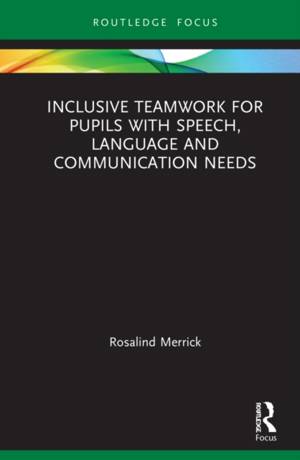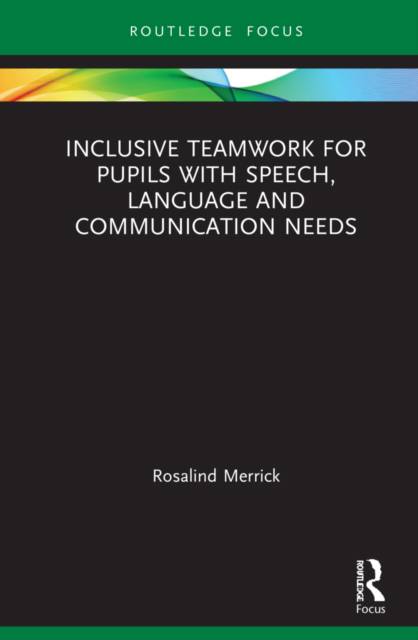
- Retrait gratuit dans votre magasin Club
- 7.000.000 titres dans notre catalogue
- Payer en toute sécurité
- Toujours un magasin près de chez vous
- Retrait gratuit dans votre magasin Club
- 7.000.0000 titres dans notre catalogue
- Payer en toute sécurité
- Toujours un magasin près de chez vous
Inclusive Teamwork for Pupils with Speech, Language and Communication Needs
Rosalind Merrick
105,45 €
+ 210 points
Format
Description
This book provides a rationale for teaching inclusive teamwork and for understanding communication as a collective endeavour. It shows how teamwork can be taught within schools and emphasises the role that classmates have in facilitating good communication, particularly in the face of difficulty.
Spécifications
Parties prenantes
- Auteur(s) :
- Editeur:
Contenu
- Nombre de pages :
- 92
- Langue:
- Anglais
- Collection :
Caractéristiques
- EAN:
- 9781032063140
- Date de parution :
- 08-09-21
- Format:
- Livre relié
- Format numérique:
- Genaaid
- Dimensions :
- 156 mm x 234 mm
- Poids :
- 326 g

Les avis
Nous publions uniquement les avis qui respectent les conditions requises. Consultez nos conditions pour les avis.






